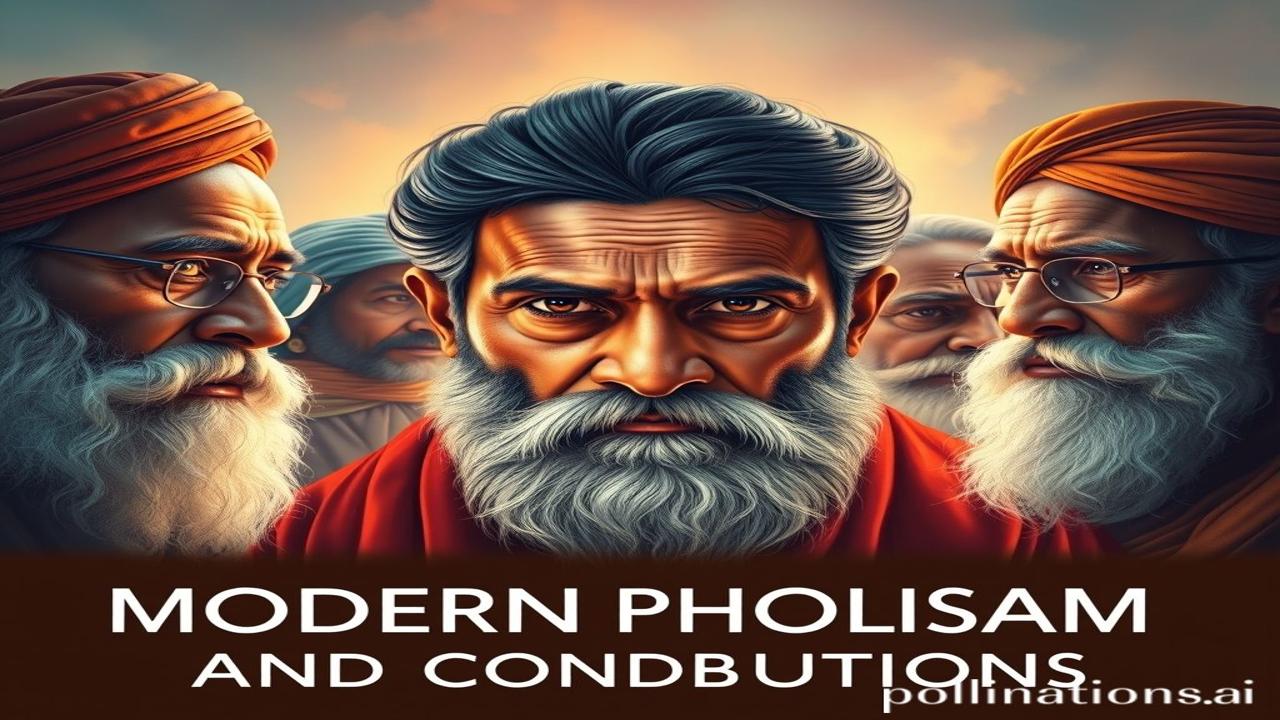Waqt Ki Dhool Mein Chhupe Darsheen: Modern Indian Philosophers and Their Contributions
Kabhi kabhi lagta hai, jaise hum ek bhoolbhulaiya mein phanse hue hain – Modernity ki chamak, globalization ka shor, aur apni jadon se doori. Par thoda ruk kar suno…waqt ki dhool mein kuch kahaniyan chhupi hain. Kahaniyan un darsheeno (philosophers) ki jinhone Bharat ki atma ko samjha, aur use naye daur mein jinda rakhne ki koshish ki. Aaj hum unhi ki baat karenge.
Indian Philosophy: A Legacy of Wisdom
Indian philosophy is not just a collection of old scriptures and abstract ideas. It’s a living tradition, a continuous conversation with the self and the universe. From the ancient Vedas to the modern era, generations of thinkers have explored the fundamental questions of existence: Who are we? What is the purpose of life? What is the nature of reality?
The modern era, particularly the 19th and 20th centuries, saw a resurgence of philosophical thought in India, influenced by both Western ideas and a renewed interest in indigenous traditions. This period gave rise to a new breed of thinkers who reinterpreted ancient concepts, adapted them to modern challenges, and offered fresh perspectives on ethics, politics, and spirituality.
The Pillars of Modern Indian Philosophy
Let’s delve into the lives and contributions of some key figures:
Swami Vivekananda: The Voice of Vedanta
- Who: A monk, social reformer, and one of the most influential figures of the 19th century.
- What: He popularized Vedanta philosophy in the West and advocated for a synthesis of spirituality and social action.
- Why Important: Vivekananda’s message of self-reliance, universal brotherhood, and the inherent divinity of humanity resonated deeply with a nation seeking identity and purpose.
Imagine Swami Vivekananda, standing before a global audience in Chicago in 1893, declaring, “Brothers and sisters of America!” His words echoed not just in the hall but across continents, awakening a sense of pride and self-belief in Indians. He taught us that “Atmano Mokshartham Jagaddhitaya cha” – “For one’s own liberation, and for the good of the world.”
Mahatma Gandhi: The Philosophy of Non-Violence
- Who: The father of the nation, a lawyer, political leader, and social reformer.
- What: He developed the philosophy of Satyagraha, a non-violent method of resistance based on truth and love.
- Why Important: Gandhi’s philosophy not only helped India gain independence but also inspired movements for social justice and equality around the world.
Think of Gandhi, quietly spinning the charkha, a symbol of self-reliance and resistance against colonial exploitation. His simple lifestyle and unwavering commitment to truth and non-violence challenged the very foundations of British rule. For him, “Ahimsa Paramodharma” – Non-violence is the highest duty.
Sri Aurobindo: The Integral Yoga
- Who: A revolutionary turned philosopher, poet, and spiritual leader.
- What: He developed the philosophy of Integral Yoga, which aims at the complete transformation of human consciousness through the integration of the physical, mental, and spiritual dimensions.
- Why Important: Sri Aurobindo offered a vision of human evolution beyond the limitations of the ego and the material world.
Imagine Aurobindo Ghosh, meditating in the silence of Pondicherry, after having spent his youth as a revolutionary. He envisioned a future where humanity transcends its current limitations and evolves into a higher state of consciousness – a Supramental Consciousness. His message was, “All life is yoga.”
Dr. Sarvepalli Radhakrishnan: Bridging East and West
- Who: A philosopher, statesman, and the second President of India.
- What: He interpreted Indian philosophy for a Western audience and emphasized the importance of ethical and spiritual values in modern life.
- Why Important: Radhakrishnan played a crucial role in promoting intercultural understanding and highlighting the relevance of Indian wisdom in the global context.
Picture Dr. Radhakrishnan, eloquently explaining the nuances of Indian philosophy to intellectuals and students worldwide. He emphasized the importance of inner experience and the pursuit of truth, bridging the gap between Eastern spirituality and Western rationality.
Dhrohar Aur Pehchan: Echoes in Modern India
These modern Indian philosophers are not just figures in history books. Their ideas continue to resonate in contemporary India. We see them in:
- Education: Values of self-reliance, social service, and ethical conduct are often emphasized in schools and colleges.
- Politics: The principles of non-violence, social justice, and equality, inspired by Gandhi, continue to influence political discourse and activism.
- Spirituality: Vedanta, Yoga, and other Indian spiritual traditions are gaining popularity both in India and around the world.
Bharatiyata, the essence of Indianness, is enriched by their contributions. They have shaped our understanding of ourselves, our nation, and our place in the world.
Majedaar Tathya: The Forgotten Revolutionary
Did you know that Sri Aurobindo was once a fiery revolutionary, involved in underground movements against British rule? He was even arrested and imprisoned for sedition! It was during his time in jail that he had profound spiritual experiences that transformed him into a philosopher and spiritual leader.
Visuals and Feelings
Imagine the aroma of incense wafting through a dimly lit ashram, the rhythmic chanting of mantras, the feel of coarse khadi fabric against your skin, the sight of the Ganges flowing serenely, carrying the hopes and dreams of millions. These are the sensory experiences that connect us to the philosophical traditions of India.
Antim Vichar: A Journey Inward
Indian philosophy ultimately points us inward. It reminds us that the answers to life’s deepest questions lie within ourselves. As the ancient Upanishads declare, “Ayam Atma Brahma” – “This Self is Brahman.” The journey to self-discovery is a lifelong pursuit, but it is a journey worth taking.
“Udatt Bhavnao Se Manushya Sadaiv Mahan Banta Hai.” – A person always becomes great through noble thoughts. Let’s embrace the wisdom of our past and create a brighter future, guided by the light of philosophy.
